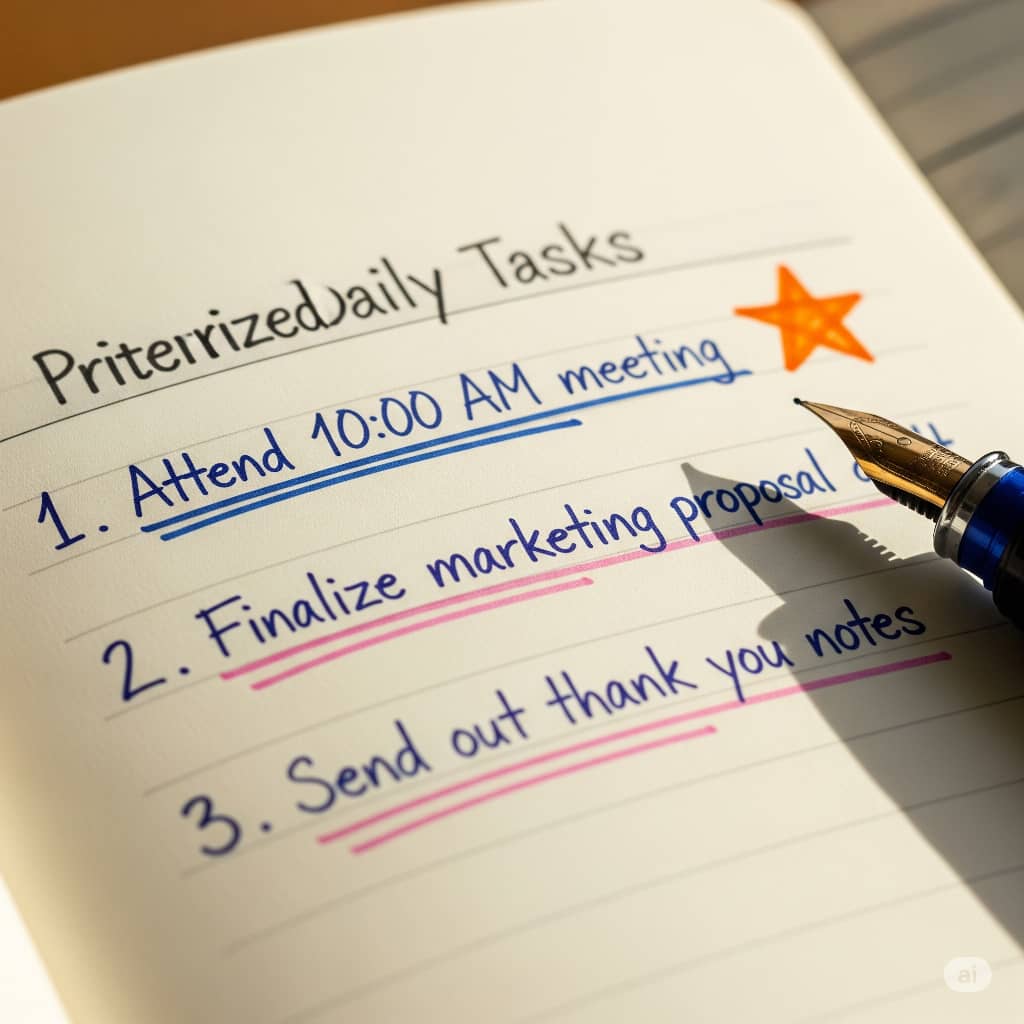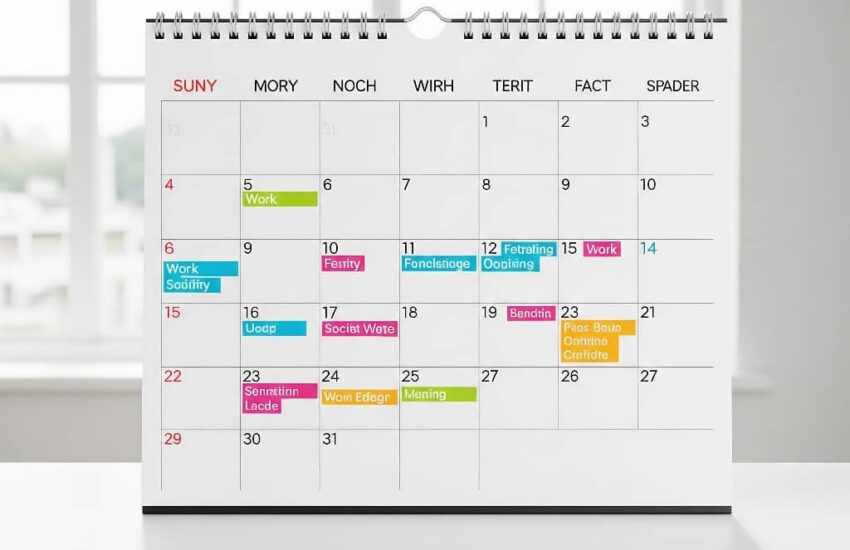Effective time management isn’t just about productivity, it’s a mental health essential. Let’s unlock how organizing your time can reduce stress, boost wellbeing, and create space for what truly matters. Sarah stared at her overstuffed calendar, the colored blocks representing obligations pressing in like walls. “I’m managing my time,” she told me, “but why do I feel so drained?” Her question reveals what most productivity guides miss true time management isn’t about cramming more in; it’s about consciously creating a life that nourishes rather than depletes you.
When the Calendar Becomes a Care Plan
We often treat time as an enemy to conquer, but neuroscientists confirm that how we structure our hours directly alters our brain chemistry. Constant time pressure triggers the same stress response as physical threats, flooding our system with cortisol. Conversely, intentional scheduling can create the mental space needed for restoration. I learned this after my own burnout, when I discovered that blank spaces in my calendar were just as important as the meetings.
Now I help clients reframe time management as self-care. A lawyer client cured her insomnia by protecting her evenings from work emails, while a new parent stopped feeling overwhelmed when he began scheduling “transition buffers” between roles. These small shifts in time design often yield bigger mental health benefits than any productivity hack.
The Deceptive Cost of Constant Switching
Our culture celebrates multitasking, but cognitive research reveals we’re actually rapid task-switching, a process that increases stress while decreasing performance quality by 40%. The mental toll shows up in subtle ways: that background anxiety of unfinished tasks, the exhaustion from never being fully present.
I’ve witnessed remarkable transformations when clients embrace monotasking. A teacher who dedicated uninterrupted morning hours to creative lesson planning found her afternoon classes flowed better. An entrepreneur discovered his decision-making improved when he stopped checking messages during deep work sessions. The common thread? Treating focused attention as a finite resource to be protected.
Time Signatures That Sing
Just as music needs rests between notes, our schedules need rhythms that honor human limits. One executive restructured his day around 90-minute work sessions followed by 20-minute movement breaks, aligning with natural ultradian rhythms. A writer client alternates intense drafting mornings with leisurely research afternoons.
The most effective schedules don’t maximize hours, they optimize energy. I’ve seen clients reduce anxiety simply by scheduling demanding tasks during personal peak hours and leaving mundane work for lower-energy times. This biological alignment creates days that feel expansive rather than exhausting.
The Liberation of Limits

Paradoxically, constraints often set us free. A client overwhelmed by endless to-dos found relief when she limited her daily priorities to three items. Another regained creative flow by imposing strict “no meeting” blocks in her week.
The most profound mental health benefits come from protecting time for what truly restores us, whether that’s an unhurried morning coffee, a weekly hike, or simply staring out the window. These aren’t luxuries, but the foundation upon which sustainable productivity is built.
True time management isn’t about doing more, it’s about being more present with what matters. When we stop treating minutes as commodities to spend and start viewing them as vessels for meaningful experience, we discover that the clock can be an ally rather than an adversary in our mental health journey.
References
Chang, Y., & Chiou, W. (2012). Effect of time management training on anxiety, depression, and sleep quality of perimenopausal women. International Journal of Nursing Practice, 18(4), 378-384. https://doi.org/10.1111/j.1440-172X.2012.02030.x [PMC article] https://pmc.ncbi.nlm.nih.gov/articles/PMC6379615/
Liu, Y., Wang, S., & Zhang, J. (2023). Postgraduates’ time management disposition and mental health: Mediating role of life satisfaction and moderating role of core self-evaluations. Frontiers in Psychology, 14, Article 1156789. https://doi.org/10.3389/fpsyg.2023.1156789 https://pmc.ncbi.nlm.nih.gov/articles/PMC10559621/
Mattern, J., Lansmann, S., & Mersmann, M. (2019). The key is not spending but investing time – students’ time management and the impact on perceived stress and psychological well-being. BLED 2019 Proceedings, 43. https://aisel.aisnet.org/bled2019/43/
Macan, T. H. (1994). Time management: Test of a process model. Journal of Applied Psychology, 79(3), 381–391. https://doi.org/10.1037/0021-9010.79.3.381

